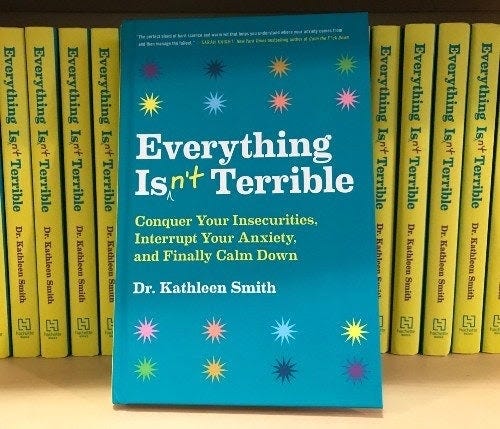Questions to Ask When You're Overfunctioning for Others
Giving yourself the grace and space to relate differently.
The cherry blossoms are officially at stage 3 here in DC, and I’m thrilled about the extra daylight in the evenings. You may have noticed I’ve been making more of my newsletters free this month, but if you’d like to access all the paid content (old and forthcoming), including worksheets, you can upgrade your subscription. Again, I appreciate your support to help make these more frequent newsletters happen! - K
I’ve written a lot about how “why” questions can get in the way of good thinking. Lately I’ve been trying to pay attention to how people use “why” questions when stuck in a pattern of overfunctioning for others.
Questions like:
Why won’t she step up?
Why do I have to do everything?
Why can’t they be a better leader?
Why can’t he take care of himself?
Why can’t she behave better?
When people are stuck in why questions, very predictable things will happen.
They stay stuck in their overfunctioning position.
They manage their frustrations through triangles, venting to others.
They see distancing from the relationship as the only way to interrupt the overfunctioning.
Rather than tell people what to do, I think it’s useful to simply start asking alternative questions to the why ones. Questions that get at the process of how tension is managed, rather than questions that attack, diagnose, or blame. These are the who, what, where, when, and how questions. They focus on the facts of people’s functioning rather than assigning motive.
Let me give you some examples.
Who are the people who, consciously or unconsciously, invite my over-involvement?
Who do I get really focused on as a way of managing my anxiety?
What do I noice about my own reactivity?
What do I do when the anxiety goes up?
What opportunities have I given people to manage themselves?
Where do I see a lack of flexibility in my responses?
Where do I see opportunities for playing around with my responses?
When have I made time to define what I’m willing to do and not do?
When have I defined this thinking to others? When have I not?
How would I like to be responsible for myself in the future?
How would I define being responsible to others?
How would I like to respond when others don’t step up?
Do you notice all the I’s in those questions? A thoughtful focus on self, rather than a blaming focus on others, invites a curiosity about how things could be different. They invite a researcher attitude, activating the part of the brain that solves problems.
They also open up the possibility of flexibility in a relationship system. Flexibility does not mean that people magically change. Simply that patterns get interrupted. They can’t be relied on as much, if you’re not participating in them the same way.
Your exercise: Think about some of the why questions you ask when you’re frustrated with someone or have been overfunctioning for them. If you’re not sure where to start, think about the stories that get told about family members, or the adjectives you use to describe people.
Your assignment: Can you generate a few questions about relationships that don’t include why? And maybe have an “I” in them? This can be difficult when anxiety is high, but even a simple question like, “What did I notice?” or “What are upcoming opportunities to pay attention?” can be a good start.
In our anxious search for answers, sometimes we forget that a few good questions are a better way to start. We can’t create new ways to be in relationship with others until we give ourselves the grace and space to be curious about the old ways.
News from Kathleen
Bonus content and a sneak peek forthcoming! The folks at St. Martin’s are putting the finishing touches on a bonus workbook I’ve written just for newsletter subscribers who preorder my next book, True to You. They’re also including Ch. 4 from the book (the chapter on overfunctioning!), so you’ll get to read it early. I will have a link up soon for you to submit your info.
Want a signed, personalized copy of my next book? You can preorder it from my neighborhood bookstore, East City Bookshop.
Want to read more of my writing? Get my book, Everything Isn't Terrible, from Amazon, Barnes and Noble, or your local bookstore (best option).
Want a free anxiety journal with the book? Calming Down & Growing Up: A 30 Day Anxiety Journal includes thirty daily prompts to help you reflect on and respond to your anxious behaviors. To receive a copy, just email me your receipt of Everything Isn’t Terrible.
Email me if you’re interested in Bowen theory coaching or want me to speak to your group or workplace. Follow me on Linkedin, Facebook, or Instagram.
Want to learn more about Bowen theory? Visit the Bowen Center’s website to learn more about their conferences and training programs.




